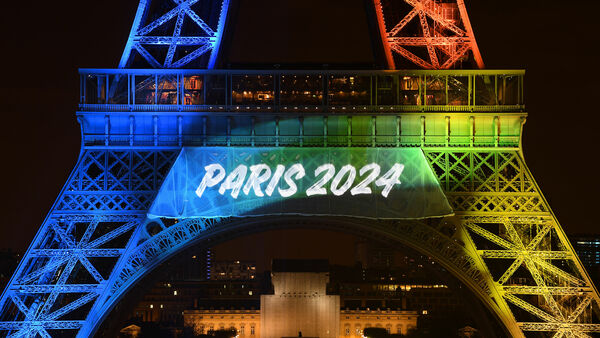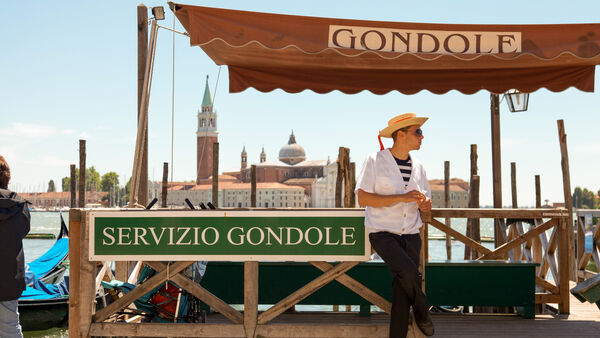Navigating a Jam-Packed Europe in 2024


By Cameron Hewitt
Paris hosts the Olympics from July 26 through August 11 (followed by the Paralympics August 28–September 8). Over the two weeks of the XXXIII Olympiad, 10 million tickets will be sold for a wide variety of events, and the world's eyes will be on Paris.
For stays during the Olympics, Parisian hotel prices are sky-high — about double what they'd be in a typical summer. But just before and after the Games, occupancy is lower than average — creating a handy window where savvy travelers might enjoy "drafting" behind, or in front of, that peak-of-peak period. (August is also France's vacation period, so post-Olympics visitors will find few Parisians in Paris.)
Major sporting events leave host cities with an improved infrastructure, which often permanently improves a visitor's experience. These upgrades go beyond stadiums and sporting venues; London, Turin, and Athens — to name just a few — still benefit from transportation lines and redevelopment that originated with the Olympics.
In Paris, new cycle paths will crisscross the city, and hundreds of buildings are being upgraded to make them greener and/or more accessible. And the Paris tourist-information bureau (called Paris je t'aime) has developed Around You, a web-based map for visitors that makes it easy to discover what's all around you: sightseeing, restaurants, shops, transportation points, and so on.
One Parisian landmark that won't quite be ready in time for the Olympics is Notre-Dame Cathedral, which remains under restoration after the devastating fire it suffered in 2019. It's now set to reopen this December.
Also this summer (June 14–July 14), Germany is hosting the UEFA European Football Championship — a.k.a. the Euro Cup — in which two dozen national teams vie for soccer supremacy. Ten German cities (including Berlin, Munich, Frankfurt, and Hamburg) will host a total of 51 Euro Cup matches during this one-month period. If you'll be traveling during this time — not only in Germany, but anywhere in Europe — keep an eye on the match schedule.
During the Euro Cup, communities across Europe huddle around big screens in bars and cafés, on piazzas, and in parks — cheering on their national squad. If the country you're visiting is taking the field, join the fun and watch the match with some new friends. Dress up in a colorful wig, buy a team scarf or jersey, and cheer alongside the natives. Even after a team gets eliminated, the whole country erupts in celebration…for advancing as far as they did. (When's the last time you saw a second- or third-place parade back home?)
Last year, you may have heard about the upcoming ETIAS registration requirement for visiting most European countries. When implemented, this will require visitors to preregister online and pay a small fee before arriving in Europe. Though this was originally planned to begin in 2024, the ETIAS program has been pushed back — likely until mid-2025 — while Europe gets its bureaucratic ducks in a row. If heading to Europe next year, keep an eye out for ETIAS updates. But for 2024, don't worry about it.
Meanwhile, Europe continues to be extremely busy with visitors. Though travel from emerging tourism markets, such as China and India, has been slow to rebound post-COVID — and it's still not up to pre-pandemic levels — the number of travelers from those countries is on the rise again.
Many cities are finding ways to proactively address the crowding. Some have placed restrictions on Airbnbs and similar short-term rentals to prevent characteristic neighborhoods from becoming only tourist hubs. Venice, which for years has been floating the idea of charging admission to enter the city, is now running a pilot program to do just that: On 29 designated days scattered throughout the height of the 2024 tourist season (mainly on weekends, and during the Biennale festival in late April and early May), all visitors to Venice are required to preregister. If you're day-tripping rather than staying overnight, you'll also need to pay a €5 fee. It's unclear how rigorously this will be enforced, and whether it will continue beyond 2024. But if you'll be in Venice this summer, check out the dates and details.
More than ever, it's smart to book accommodations and major sightseeing well in advance. Many of our favorite accommodations — friendly B&Bs and charming boutique hotels run by wonderful Europeans — can fill up months ahead. Likewise, booking ahead for a top attraction can save you disappointment, or at least hours of waiting in line. For example, travelers hoping to visit Rome's Vatican Museums, with the famous Sistine Chapel, are reporting that it's wise to reserve your slot 60 days in advance, when tickets are released — at midnight Rome time, to be precise (book via the Vatican Museums' official website). For the busiest times, if you wait to book, you may well find that tickets have sold out — leaving you scrambling to buy marked-up tickets from resellers.
Plan for crowds, book ahead, and then…enjoy yourself! That's good advice whether you're going to Paris during the Olympics, Germany during the Euro Cup, or anywhere during the busy spring-to-fall travel season. Happy 2024 travels!
Cameron Hewitt is the co-author of several Rick Steves guidebooks.

